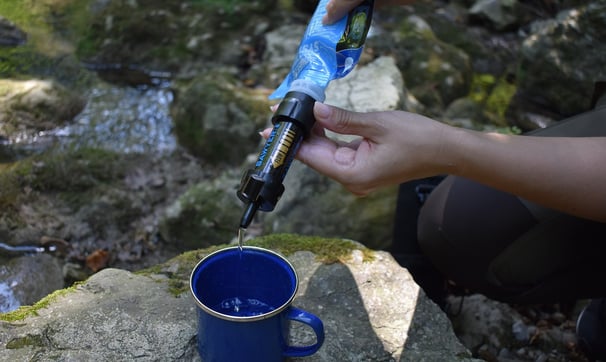Water Filtration vs. Water Purification: Understanding the Difference
Water Filtration vs. Water Purification: Understanding the Difference


Water is the essence of life, and access to clean and safe drinking water is essential for maintaining good health and well-being.
With increasing concerns over water quality, people are often confused about the difference between water filtration and water purification. In this blog post, we will shed light on these two crucial processes, their distinctions, and their respective benefits in ensuring the delivery of safe, potable water.
Water Filtration: Filtering Out Impurities
Water filtration is a process that removes physical particles and contaminants from water using a physical barrier, such as a filter medium. The main objective is to reduce or eliminate impurities like sediment, debris, chlorine, heavy metals, and some bacteria from the water. Filtration works on the principle of sieving, where water is passed through a porous material, and particles larger than the pores get trapped, leaving cleaner water on the other side.
There are various types of water filtration systems available, ranging from simple household filters with activated carbon to more advanced systems that employ reverse osmosis technology. Activated carbon filters are effective in removing organic compounds and chlorine, while reverse osmosis systems can effectively remove bacteria, viruses, and even some dissolved minerals.
Pros of Water Filtration:
Removes visible impurities and sediment.
Improves taste and odor by eliminating chlorine and other contaminants.
Cost-effective and easy to install for personal use.
Requires minimal maintenance and no electricity.
Cons of Water Filtration:
May not remove all types of contaminants, such as dissolved salts and heavy metals.
Filter replacement is necessary at regular intervals.
Does not kill microorganisms like bacteria and viruses.
Water Purification: Treating Water at Molecular Level
Water purification, on the other hand, is a more comprehensive process that aims to eliminate or inactivate various types of contaminants, including microscopic organisms, dissolved minerals, heavy metals, chemicals, and pollutants. The primary objective of water purification is to make water safe for consumption and various industrial applications.
Water purification methods involve chemical, biological, or physical processes, or a combination of these, to achieve higher water quality. Common methods include chlorination, ultraviolet (UV) disinfection, ozonation, distillation, and ion exchange. These processes go beyond just physical filtering and focus on breaking down and neutralizing harmful elements.
Pros of Water Purification:
Removes a wider range of contaminants, including harmful microorganisms.
Enhances overall water quality by eliminating dissolved impurities.
Suitable for various water sources, including groundwater and surface water.
Can be tailored to specific needs depending on the targeted contaminants.
Cons of Water Purification:
Often more expensive to set up and maintain, especially on a large scale.
Some purification methods may alter the taste of water.
Requires monitoring and periodic maintenance to ensure continued effectiveness.
Choosing the Right Solution
The choice between water filtration and water purification largely depends on the specific water quality concerns and the intended use of the treated water. For everyday household use, a water filtration system may suffice to remove visible particles and improve taste. However, in situations where the water source is known to carry harmful pathogens or high levels of pollutants, a water purification system is more appropriate to ensure safety.
It's important to consider the effectiveness, maintenance requirements, and cost of both options before making a decision. Additionally, always look for certifications and third-party test results to verify the claims of any water treatment system.
Conclusion
In conclusion, water filtration and water purification are distinct processes with their own advantages and applications. Filtration primarily targets visible particles and improves taste, while purification aims at eliminating a broader spectrum of contaminants to ensure the water is safe for consumption. Understanding the difference between these two methods is crucial for making an informed choice and ensuring access to clean, healthy water for everyone's well-being. Remember, when it comes to water quality, safety should always be a top priority.
